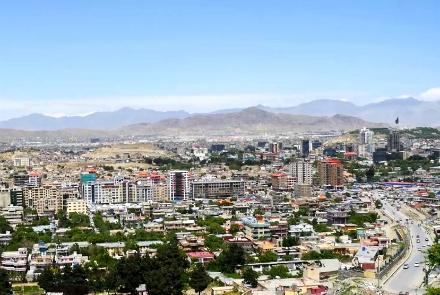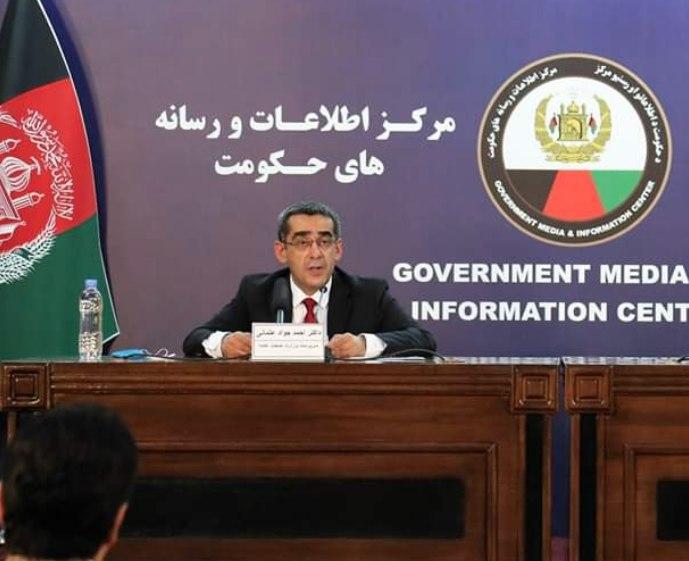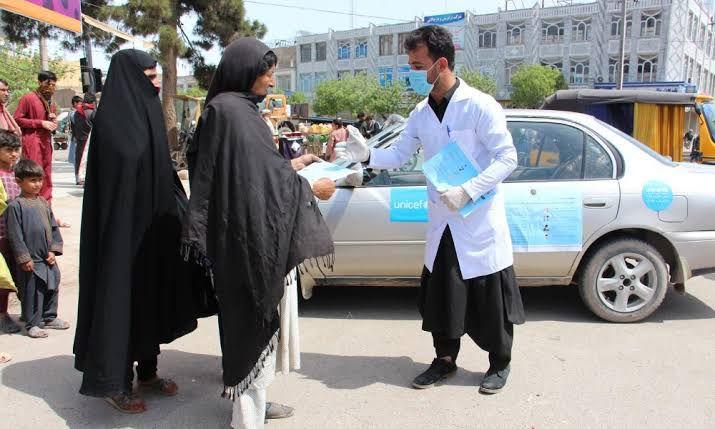Covid-19’s economic jolt has been felt most strongly in developing countries like Afghanistan, where extreme poverty, conflict, and complex politics render an already-fragile economy especially vulnerable to sudden reductions in foreign aid. Even as attention shifts to the ongoing, uncertain intra-Afghan peace process and myriad other issues, Afghanistan must prioritize economic development to keep food on Afghan tables. In this current landscape, how can the country keep and attract domestic and foreign investment, create jobs, and increase GDP and living standards, all while maintaining security?
Publish dateWednesday 22 July 2020 - 15:38
Story Code : 215237
An answer? Create a major Special Economic Zone (SEZ), using investment incentives such as tax holidays, free industrial land, and loan access. This strategy has a strong track record in unstable and developing contexts. Sixty years ago, a similar initiative in Shannon, County Clare, the Republic of Ireland—the Shannon Free Zone, a 2.43 square km international business park adjacent to the Shannon Airport—attracted many multinational companies and sustained Ireland through financial and political turmoil. Other examples of successful SEZs include Dubai Media City and the many economic zones in and around Shanghai. As it was in Shannon--or in Dubai or Beijing--so it can be in Kabul.
Why is this tool so promising in unstable contexts? Successful “free” zones create economies of scale, wherein domestic markets transcend their limited purchasing power. After achieving that economy of scale, producers can engage in substantial product diversification; thus, even smaller SEZ marketeers develop sophisticated market knowledge as well as design and production capabilities. In Afghanistan, SEZs could cultivate industrial clusters that promote exports, create jobs, provide profitable, legal alternatives to illicit crop production (namely, of the opium poppy), and improve living standards, especially in rural areas.
SEZ attempts in Afghanistan are not unprecedented. In 2015, Harakat-AICFO and Samuel Hall noted that “the potential for the creation and development of SEZs in Afghanistan is real.” That same analysis scored Mazar-e-sharif, Kabul, and Herat as “leading options for the development of a SEZ.” The Afghan government and other players moved to realize this potential in mid-2015, establishing the Afghanistan Airfield Economic Development Commission (AAEDC) to responsibly convert airfields into SEZs that would build capacity and attract foreign direct investment.
Unfortunately, ongoing conflict, political instability, and economic turbulence have slowed these ambitious efforts. With this history in mind, sceptics might suggest that Afghanistan isn’t ready for a successful SEZ—particularly as COVID-19 exacerbates challenges on the ground. But, though we must learn from the setbacks of previous Afghan SEZ efforts, the convergence of existing challenges and a new crisis that threatens millions of livelihoods worldwide requires redoubled effort, not retreat.
The imperative to boldly leverage SEZs to bolster Afghanistan’s economy does not mean that the task will be easy. Developing a successful SEZ requires substantial government commitment, bringing together necessary physical and administrative infrastructure to facilitate private sector production and trade, and link national and international markets as well as larger and smaller enterprises. Unless the government acts with coherent and coordinated force, it will be impossible to generate and sustain the momentum required for a long-term, successful homegrown SEZ venture.
We see buzzing Kabul as holding the greatest potential for a sustainable SEZ; however, opportunities to facilitate trade also abound in developed border areas like Hairatan, following China’s model of border (or seaport) SEZs. To mitigate risks relative to potential rewards during COVID-19, a Kabul Special Economic Zone (the KSEZ) should operate within the bounds of Afghan and international private sector confidence. That confidence must be girded by the sustained performance of and belief in the Afghan government.
What else will facilitate a hypothetical KSEZ’s success in the fight to save Afghanistan’s economy from COVID-19? Experience from both historic and contemporary SEZs demonstrates that a rigorous legal framework will be vital to a successful KSEZ. Furthermore, the KSEZ’s success will pivot on a constant, bidirectional transfer of technology and skills within the market.
The task ahead of us is significant, but the prize will be significant, too: In China, India, and elsewhere, SEZs catalysed broader economic success and improvements in standards of living both inside and outside targeted zones. The establishment of robust SEZs in Afghanistan will allow Afghans to increase control over their own markets while maintaining service standards, product quality, and delivery schedules. Such control would not only address the coronavirus-exacerbated economic crisis, but would inoculate Afghan livelihoods against future crises. As in Shannon, Dubai, or Beijing, so it can be in Kabul.
Authors’ bio:
Shakib Noori holds a Master’s Degree in International Economic Policy and Management from Columbia University in New York City and has been working for over fourteen years in the promotion of economic growth for Afghanistan. Twitter @shakibnoori
Suleman Fatimie is the Managing Partner at ACE, a consultancy firm based out of Kabul/Afghanistan. He has served in a number of executive position in the public, private and development sectors in Afghanistan.
Why is this tool so promising in unstable contexts? Successful “free” zones create economies of scale, wherein domestic markets transcend their limited purchasing power. After achieving that economy of scale, producers can engage in substantial product diversification; thus, even smaller SEZ marketeers develop sophisticated market knowledge as well as design and production capabilities. In Afghanistan, SEZs could cultivate industrial clusters that promote exports, create jobs, provide profitable, legal alternatives to illicit crop production (namely, of the opium poppy), and improve living standards, especially in rural areas.
SEZ attempts in Afghanistan are not unprecedented. In 2015, Harakat-AICFO and Samuel Hall noted that “the potential for the creation and development of SEZs in Afghanistan is real.” That same analysis scored Mazar-e-sharif, Kabul, and Herat as “leading options for the development of a SEZ.” The Afghan government and other players moved to realize this potential in mid-2015, establishing the Afghanistan Airfield Economic Development Commission (AAEDC) to responsibly convert airfields into SEZs that would build capacity and attract foreign direct investment.
Unfortunately, ongoing conflict, political instability, and economic turbulence have slowed these ambitious efforts. With this history in mind, sceptics might suggest that Afghanistan isn’t ready for a successful SEZ—particularly as COVID-19 exacerbates challenges on the ground. But, though we must learn from the setbacks of previous Afghan SEZ efforts, the convergence of existing challenges and a new crisis that threatens millions of livelihoods worldwide requires redoubled effort, not retreat.
The imperative to boldly leverage SEZs to bolster Afghanistan’s economy does not mean that the task will be easy. Developing a successful SEZ requires substantial government commitment, bringing together necessary physical and administrative infrastructure to facilitate private sector production and trade, and link national and international markets as well as larger and smaller enterprises. Unless the government acts with coherent and coordinated force, it will be impossible to generate and sustain the momentum required for a long-term, successful homegrown SEZ venture.
We see buzzing Kabul as holding the greatest potential for a sustainable SEZ; however, opportunities to facilitate trade also abound in developed border areas like Hairatan, following China’s model of border (or seaport) SEZs. To mitigate risks relative to potential rewards during COVID-19, a Kabul Special Economic Zone (the KSEZ) should operate within the bounds of Afghan and international private sector confidence. That confidence must be girded by the sustained performance of and belief in the Afghan government.
What else will facilitate a hypothetical KSEZ’s success in the fight to save Afghanistan’s economy from COVID-19? Experience from both historic and contemporary SEZs demonstrates that a rigorous legal framework will be vital to a successful KSEZ. Furthermore, the KSEZ’s success will pivot on a constant, bidirectional transfer of technology and skills within the market.
The task ahead of us is significant, but the prize will be significant, too: In China, India, and elsewhere, SEZs catalysed broader economic success and improvements in standards of living both inside and outside targeted zones. The establishment of robust SEZs in Afghanistan will allow Afghans to increase control over their own markets while maintaining service standards, product quality, and delivery schedules. Such control would not only address the coronavirus-exacerbated economic crisis, but would inoculate Afghan livelihoods against future crises. As in Shannon, Dubai, or Beijing, so it can be in Kabul.
Authors’ bio:
Shakib Noori holds a Master’s Degree in International Economic Policy and Management from Columbia University in New York City and has been working for over fourteen years in the promotion of economic growth for Afghanistan. Twitter @shakibnoori
Suleman Fatimie is the Managing Partner at ACE, a consultancy firm based out of Kabul/Afghanistan. He has served in a number of executive position in the public, private and development sectors in Afghanistan.
Source : Afghan Voce Agency(AVA)
avapress.net/vdcjtie8auqev8z.92fu.html
Tags
Top hits












